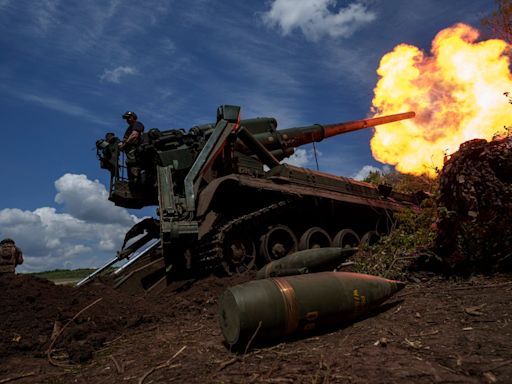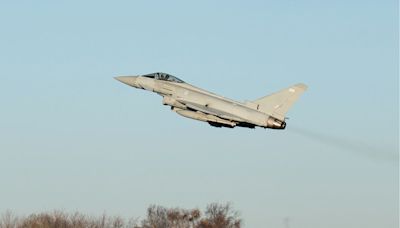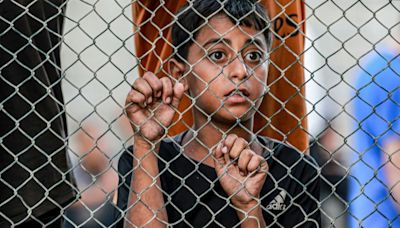Search results
War and War (Hungarian: Háború és háború) is a 1999 novel by the Hungarian writer László Krasznahorkai. It tells the story of a Hungarian man who is obsessed with a mysterious manuscript, which he decides to travel to New York City to write down and post on the Internet.
- Afghanistan. The war in Afghanistan has been on and off since 1978. The current phase began in 2001 when the United States invaded Afghanistan to drive out the Taliban.
- Yemen. The Yemeni Civil War started in 2015 between the Abdrabbuh Mansur Hadi-led Yemeni government and the Houthi armed movement, who both claimed to control the Yemen government.
- Syria. The Syrian Civil War, which began in 2011, is the second-deadliest war of the 21st century. The war is an ongoing conflict between the Ba'athist Syrian Arab Republic led by Syrian President Bashar al-Assad, domestic and foreign allies, and various domestic and foreign forces opposing both the Syrian government and each other varying combinations.
- Mexico. Starting in 2006, the Mexican Drug War is the Mexican theater for the war on drugs. It is a relatively low-intensity conflict between the Mexican government and multiple drug trafficking syndicates.
Jan 1, 2001 · War & War, László Krasznahorkai’s second novel in English from New Directions, begins at a point of danger: on a dark train platform Korim is on the verge of being attacked by thuggish teenagers and robbed; and from here, we are carried along by the insistent voice of this nervous clerk.
- (2.3K)
- Paperback
- Overview
- Evolution of theories of war
war, in the popular sense, a conflict between political groups involving hostilities of considerable duration and magnitude. In the usage of social science, certain qualifications are added. Sociologists usually apply the term to such conflicts only if they are initiated and conducted in accordance with socially recognized forms. They treat war as an institution recognized in custom or in law. Military writers usually confine the term to hostilities in which the contending groups are sufficiently equal in power to render the outcome uncertain for a time. Armed conflicts of powerful states with isolated and powerless peoples are usually called pacifications, military expeditions, or explorations; with small states, they are called interventions or reprisals; and with internal groups, rebellions or insurrections. Such incidents, if the resistance is sufficiently strong or protracted, may achieve a magnitude that entitles them to the name “war.”
In all ages war has been an important topic of analysis. In the latter part of the 20th century, in the aftermath of two World Wars and in the shadow of nuclear, biological, and chemical holocaust, more was written on the subject than ever before. Endeavours to understand the nature of war, to formulate some theory of its causes, conduct, and prevention, are of great importance, for theory shapes human expectations and determines human behaviour. The various schools of theorists are generally aware of the profound influence they can exercise upon life, and their writings usually include a strong normative element, for, when accepted by politicians, their ideas can assume the characteristics of self-fulfilling prophecies.
Reflecting changes in the international system, theories of war have passed through several phases in the course of the past three centuries. After the ending of the wars of religion, about the middle of the 17th century, wars were fought for the interests of individual sovereigns and were limited both in their objectives and in their scope. The art of maneuver became decisive, and analysis of war was couched accordingly in terms of strategies. The situation changed fundamentally with the outbreak of the French Revolution, which increased the size of forces from small professional to large conscript armies and broadened the objectives of war to the ideals of the revolution, ideals that appealed to the masses who were subject to conscription. In the relative order of post-Napoleonic Europe, the mainstream of theory returned to the idea of war as a rational, limited instrument of national policy. This approach was best articulated by the Prussian military theorist Carl von Clausewitz in his famous classic On War (1832–37).
Britannica Quiz
History of Warfare
World War I, which was “total” in character because it resulted in the mobilization of entire populations and economies for a prolonged period of time, did not fit into the Clausewitzian pattern of limited conflict, and it led to a renewal of other theories. These no longer regarded war as a rational instrument of state policy. The theorists held that war, in its modern, total form, if still conceived as a national state instrument, should be undertaken only if the most vital interests of the state, touching upon its very survival, are concerned. Otherwise, warfare serves broad ideologies and not the more narrowly defined interests of a sovereign or a nation. Like the religious wars of the 17th century, war becomes part of “grand designs,” such as the rising of the proletariat in communist eschatology or the Nazi doctrine of a master race.
Some theoreticians have gone even further, denying war any rational character whatsoever. To them war is a calamity and a social disaster, whether it is afflicted by one nation upon another or conceived of as afflicting humanity as a whole. The idea is not new—in the aftermath of the Napoleonic Wars it was articulated, for example, by Tolstoy in the concluding chapter of War and Peace (1865–69). In the second half of the 20th century it gained new currency in peace research, a contemporary form of theorizing that combines analysis of the origins of warfare with a strong normative element aiming at its prevention. Peace research concentrates on two areas: the analysis of the international system and the empirical study of the phenomenon of war.
Students save 67%! Learn more about our special academic rate today.
- Joseph Frankel
Apr 17, 2006 · War and War, Laszla Krasznahorkai's second novel in English from New Directions, begins at a point of danger: on a dark train platform Korim is on the verge of being attacked by thuggish teenagers and robbed; and from here, we are carried along by the insistent voice of this nervous clerk.
- (87)
- New Directions Publishing Corporation
- $16.62
- László Krasznahorkai, George Szirtes
Follow the latest news about the Russia Ukraine war. Find reports from the ground, verified videos, maps and expert analysis by BBC correspondents across the world.
War and Peace ( Russian: Война и мир, romanized : Voyna i mir; pre-reform Russian: Война и миръ; [vɐjˈna i ˈmʲir]) is a literary work by Russian author Leo Tolstoy. Set during the Napoleonic Wars, the work mixes fictional narrative with chapters discussing history and philosophy.



